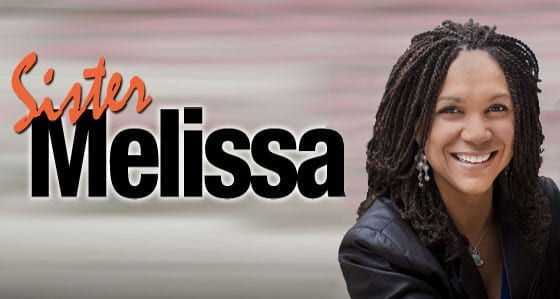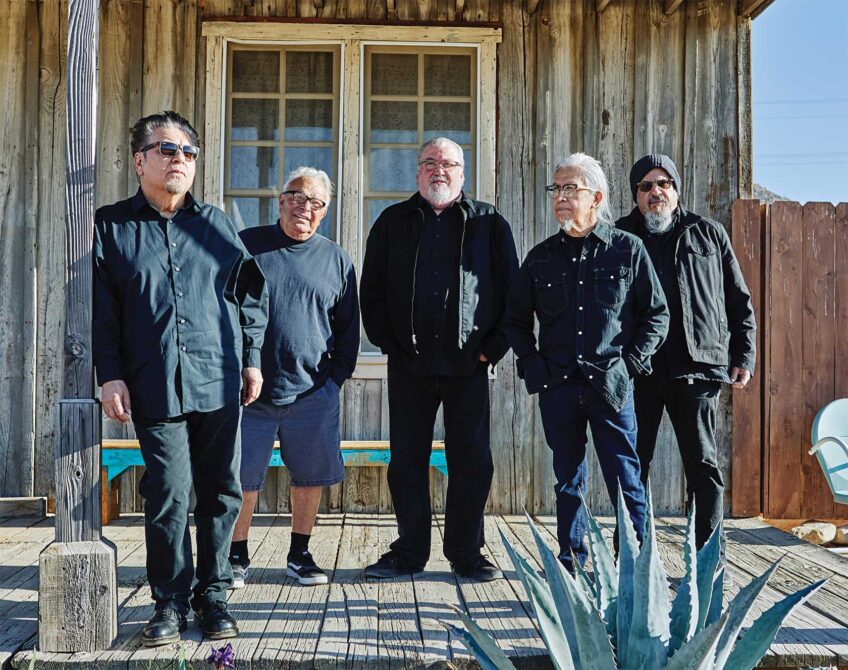Melissa V. Harris-Perry reflects on American culture and politics while discussing her new book, “Sister Citizen.”

Melissa V. Harris-Perry reflects on American culture and politics while discussing her new book, “Sister Citizen.”
Born in Seattle, Wash., on Oct. 2, 1973, but raised in Charlottesville and Chester, Va., Melissa V. Harris-Perry is a professor of political science at Tulane University, where she is the founding director of the project on gender, race and politics in the South. Her previous book, “Barbershops, Bibles, and BET: Everyday Talk and Black Political Thought,” won the 2005 W. E. B. Du Bois Book Award from the National Conference of Black Political Scientists and the 2005 Best Book Award from the Race and Ethnic Politics Section of the American Political Science Association.
Besides being a columnist for The Nation Magazine, Dr. Harris-Perry frequently appears as a guest or fill-in host on MSNBC’s “The Thomas Roberts Show,” “Up with Chris Hayes,” “The Rachel Maddow Show” and “The Last Word with Lawrence O’Donnell.”
Melissa lives in New Orleans with her husband, James Perry, and her daughter, Parker.
What interested you in writing “Sister Citizen”?
I had started the project before Hurricane Katrina, but the real turning point for me was the race and gender politics that emerged on the national stage after the levee failure.
That was, for me, a consolidating moment in my attempt to understand the experience of contemporary black women trying to be American citizens.
What message do you hope readers will take away from the book?
I suspect different audiences will take away different things from the book. For instance, my editor at Yale University Press, who is a white male, felt that he’d been introduced to some black women’s literature he’d never read and to some stereotypes and ideas that he’d previously never engaged with.
By contrast, some black women I’ve talked to about the book weren’t surprised by what they read. They found that it resonated with their experiences and perhaps contributed to their vocabulary and gave them some new ways of thinking about the political meaning of those experiences.
What was the most important lesson you learned from this project?
I learned two lessons: one from the research, one from the writing. From the research, this idea that you just have to be strong if you’re a black woman. And in the process of writing, I learned that you can’t write a book in the margins of your life.
I’d forgotten how much uninterrupted time it takes to write chapters, and how you have to push everything else aside and really focus.
Why the negative response to “The Help”?
I could go on in considerable depth about it, but let me address the two most dishonest aspects.
The first is the fact that although the author tried to illustrate the tension between white women and their maids, she ignores the black women’s relationships with two other very important groups in the household: the white men and the white children.
She refuses to imagine that they could have felt anything other than pure love, attachment, affection and fidelity toward the kids they were hired to care for. It is such a bizarre, romantic notion that they didn’t have mixed feelings about spending so much time caring for children of privilege while their own offspring went neglected because they were in these white households.
Clearly, the book was written from the perspective of a person who had been raised by one of these loving black maids and who therefore couldn’t imagine anything but affection on the part of the caretaker.
The second dishonest aspect of the book was how it ignored the violence by white men against blacks. One scene in the movie that just made me want to rip my hair out was when, in response to the Medgar Evers assassination, all the maids finally decide to talk to Miss Skeeter. That is made up! That is not what happened!
The truth is that when Medgar Evers was murdered, the black maids of Jackson, Mississippi organized themselves and went out into the streets en masse, thereby not only putting their jobs in jeopardy but risking violent reprisals on the part of the police and the white community.
“The Help” ignores that brave, real-life effort in favor of a fantasy suggesting that what they needed was to share their stories with a white woman in secret.
A careful author would’ve done her research and then incorporated what actually transpired, because accounts about these maids’ bravery are readily available.
The danger that I fear now is that “The Help” will become the historical record because of its popularity, and that people who see the movie will come to believe that that’s really what happened.
Yeah, like how the misleading images in “Gone with the Wind” came to replace the truth about the South during slavery.
Exactly! That’s precisely what happened with both “Gone with the Wind” and “The Birth of a Nation.” Popular films are so powerful and compelling that it’s often easier to accept their versions of history than the much more complicated true stories.
When did we black women get so far off the mark with our public image? With all we’ve accomplished, why is self-esteem still such a problem in our communities?
In 1619 [when the first slaves were brought to America]. There has never been a moment when African American women were fundamentally celebrated as model citizens. Even at this point in history when we have a black first lady, we see the power of these negative stereotypes about black women in that the dishonest mythology continues to thrive.
There are people who want to identify themselves as biracial because they feel that they have to acknowledge both cultural identities. What made you decide to identify yourself as black?
This is the weirdest question that I am consistently asked. When I grew up in Virginia in the Seventies, there was no such thing as biracial. I understand that in 2011 you can opt to self-identify as biracial, although others might still identify you differently.
Having a white parent undoubtedly makes for a different childhood experience than having two black parents. However, I think the idea that you’re somehow rejecting whiteness if you don’t identify yourself as biracial is odd because everybody engages in whiteness.
If you live in America, you’re doing whiteness all the time, even if you have no white people in your family. So, I don’t know what people mean when they ask me whether I’m embracing my whiteness. Whiteness is ubiquitous.
That being said, I believe that in 21st century America it’s perfectly legitimate for children with a black parent and a white parent to identify themselves as biracial, if that’s their preference.
Do you think President Obama is doing enough for African American communities throughout the U.S., or have major issues like wars, the oil spill and The Great Recession been too much for one administration during one term?
I think the most critical needs of the African American communities aren’t being addressed primarily because of decisions being made by Republican Congressional leaders. The efforts to kill the president’s health care, jobs and stimulus packages have all been at the behest of the Republican leadership.
Some polls indicate that President Obama’s support is waning in the African American community given the state of the economy and black unemployment rate. Do you foresee the Republican Party increasing its efforts to get the black vote in 2012, and making any inroads in that regard?
No, the Republicans don’t need black folks to vote Republican, they just need them to not vote.
What is your guiltiest pleasure?
Reality TV.
What is your favorite dish to cook?
Macaroni and cheese.
When do you feel the most content?
Sunday mornings before church, when I’m home with my husband and daughter, and we’re kind of doing our Sunday morning routine.
How do you define success? And, what key quality do you believe all successful people share?
For me, success is when I’m making a contribution and fully engaging all of my talents. In terms of the key quality, it’s being willing to continue to believe in yourself even when other people don’t, and being able to fail and to come back.
What advice do you have for anyone who wants to follow in your footsteps?
Woo! Drink lots of water, and nap. I’ve made some really big messes along the way, whether on the academic side or on the media side. It hasn’t been a straight path. But a lot of those mess-ups have led to opportunities, so I guess I’d say be fearless, and keep bottled water with you, so you don’t dehydrate.







